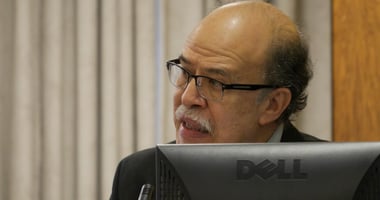“The [mental health] treatment gap is the great challenge we face today,” said Jorge Rodriguez,...
Mental Health Workforce Can't Meet Needs of Elderly Americans
 |
APA issued a statement saying it "strongly supports" the IOM report, which is titled "The Mental Health and Substance Use Workforce for Older Adults: In Whose Hands?" and includes recommendations to help ameliorate the building crisis. Among those is that professional organizations need to set standards for training in this area. APA President and geriatric psychiatrist Dilip Jeste, M.D., responded to the report, saying, "We hope that necessary changes are implemented soon to provide badly needed care to one of the most disenfranchised sectors of our society."
Jeste discussed mental health issues for older individuals in a recent issue of Psychiatric News. Read much more on the subject in American Psychiatric Publishing's Essentials of Geriatric Psychiatry, Second Edition.
(image:Monkey Business Images/Shutterstock.com)





